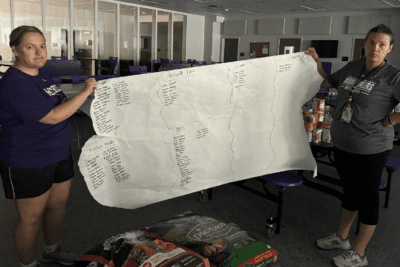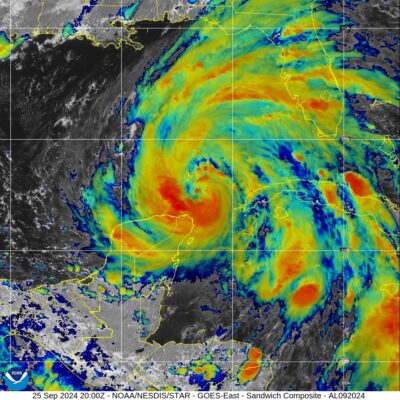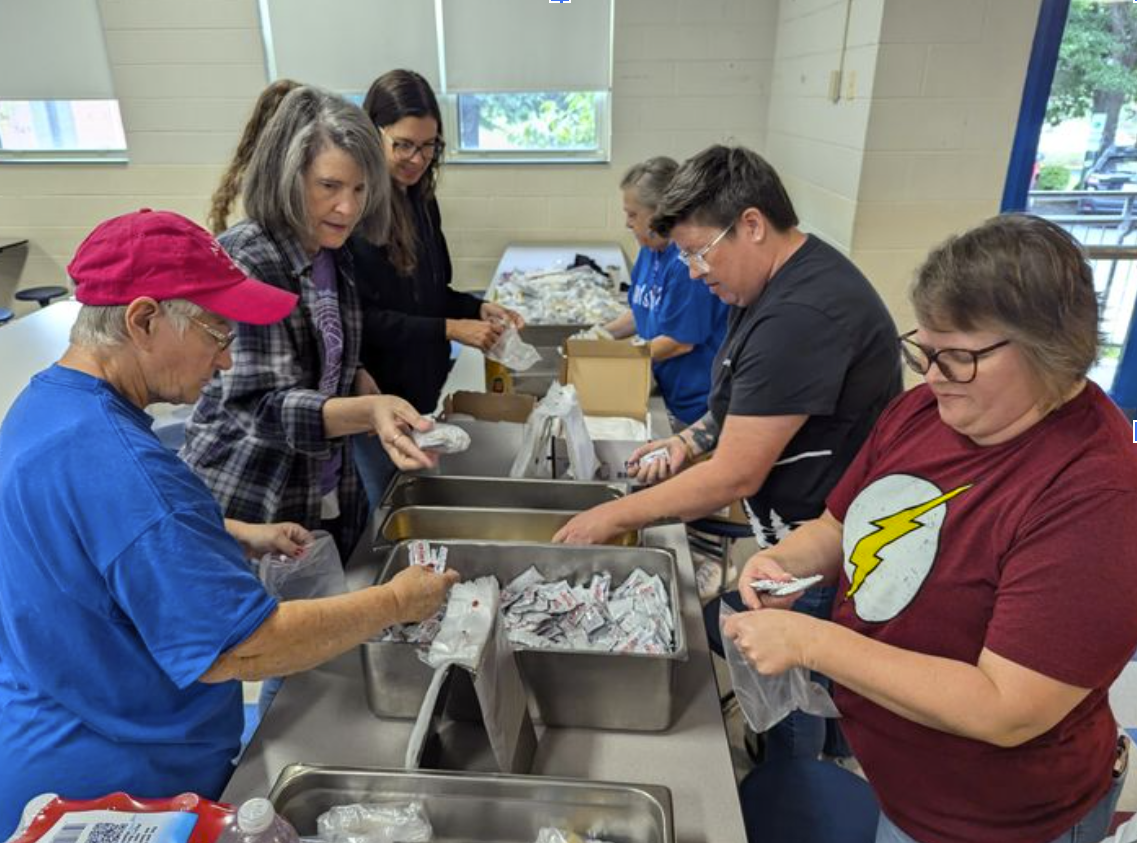
Emma Maney is a teacher in Jackson County Public Schools. These are some of her experience as Hurricane Helene came through her community.
On the afternoon of Sept. 25, the sounds of backpacks zipping and lockers slamming pierced hallways in schools across Jackson County. Children cheered at the prospect of an extra-long weekend.
Students and staff had just been informed that school would be closed for the next two days due to “forecasted flash flooding and inclement weather approaching Western NC.” Despite the warnings that the hurricane was to bring “catastrophic, life-threatening flooding,” many had no idea the true extent of the storm’s power.
No one imagined the devastation that was to follow.
Hurricane Helene crashed into Western North Carolina early Friday morning, leaving much loss, destruction, and catastrophe in its wake. In Jackson County, over 11 inches of rain fell within the three day span.
The Tuckasegee River, the main river in Jackson County, rose from its normal height of around 4.5 feet to over 17 feet on Friday morning. Following the rain, wind gusts rose to 60 miles per hour in certain areas of the county, causing trees to fall and power lines along with them.
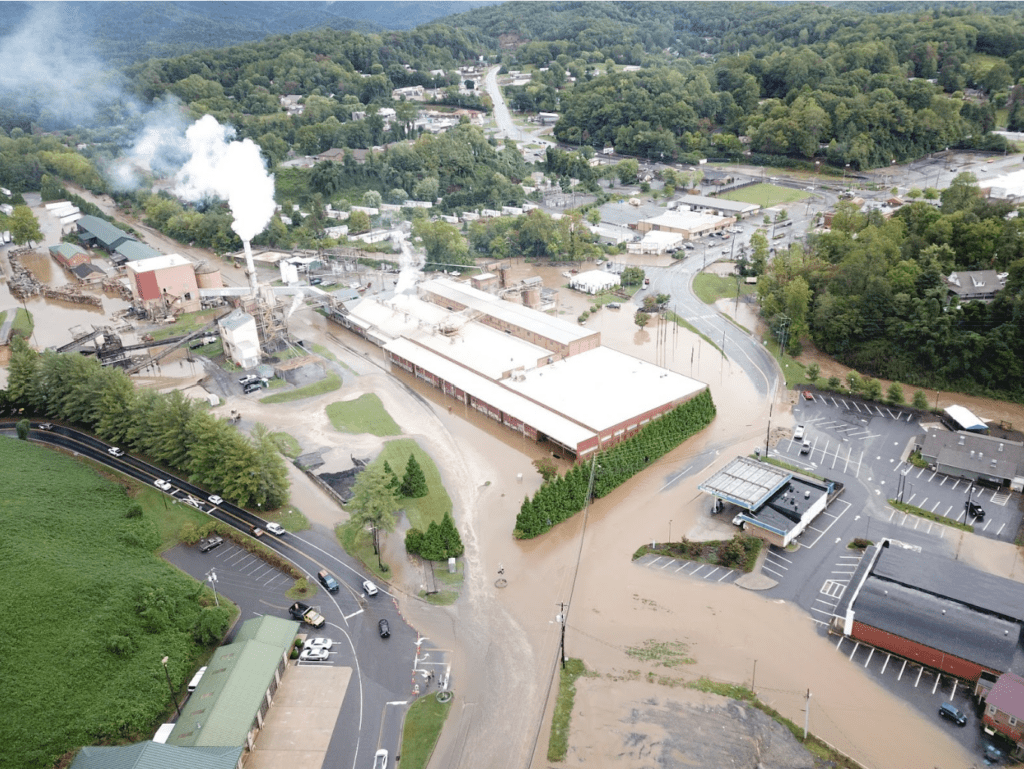
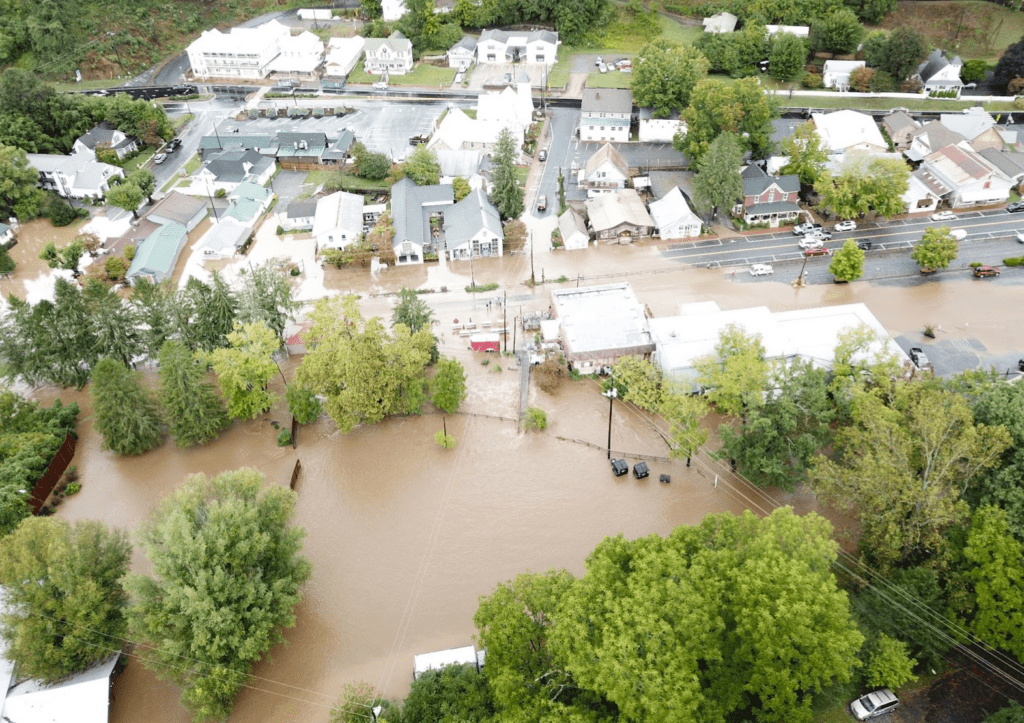
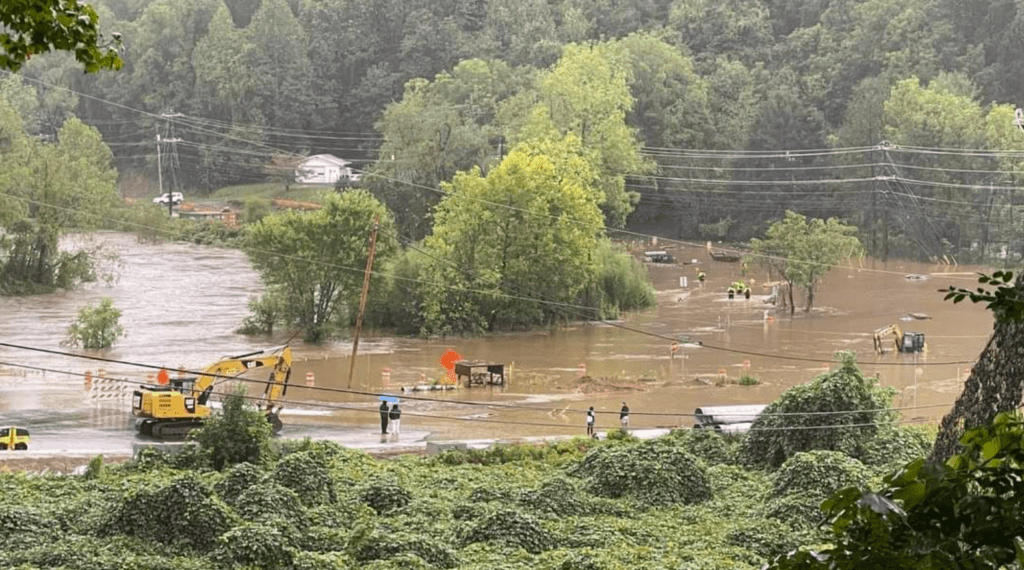
Aftermath and shortages
We can now see that Jackson County was relatively spared from the full force of the storm, but Hurricane Helene left its mark. It now takes about an hour and 45 minutes to drive from the northernmost tip of Jackson County to the southernmost tip because of a wide variety of storm impacts.
The southern end of the county from Tuckasegee to Cashiers was hit the worst. Many roads in especially rural corners in this part of the community remain impassable. Around 3,000 residents still did not have power as of Tuesday afternoon.
Jackson County was without cell service or internet from early Friday afternoon until late Monday evening, when cell service was restored to a majority of the county. With limited to no cell service in many areas to begin with, it is difficult to know just how many residents in Jackson County are unable to leave their homes. Internet access continues to remain spotty throughout the county.
Jackson County continues to run low on food and fuel as residents from surrounding counties travel to Jackson to find resources. Gas stations are currently limiting sales to 10 gallons a day at most locations. Grocery stores are restocking as quickly as possible, but many roads and routes used by truck drivers entering Western North Carolina remain inaccessible.
Ingles, a regional grocery store chain that serves the southeastern Appalachian area of the United States, faces major distribution challenges as one of their main warehouses in Black Mountain is now inaccessible due to flood damage.
Additionally, many stores and gas stations were unable to accept debit or credit cards while internet and cell signal was down, resulting in cash-only transactions. ATMs across the county have begun running out of cash.
On Monday morning, residents of Sylva waited for hours inside Wells Fargo on Main Street to receive cash. As their systems were still down at this point, tellers were writing down customers’ names and the amount they withdrew, as there was no way to check account balances. As connectivity slowly returns to the county, many locations are still requiring cash.
Currently, two different shelters are open in the county: on the southern end of the county, the Cashiers Recreation Center at 355 Frank Allen Road in Cashiers, and on the northern end, the Department of Aging Center at 100 County Services Park in Sylva.
Schools coming together
In rural communities, local public schools are the backbone that binds us all together. In Jackson County, this is no different. Jackson County Public Schools is currently providing fuel for first responders, ambulances, and other emergency vehicles in the county as fuel reserves run low. School is canceled in Jackson County through Oct. 4.
On Tuesday, Wednesday, Thursday, and Friday, schools in three different corners of the county — Blue Ridge School, Smoky Mountain High School, and Smokey Mountain Elementary School — are providing hot meals for any adult or child, as well as breakfast supplies for the following day.
More than 1,100 meals were distributed on Tuesday.
More than 1,700 meals were distributed on Wednesday.
More than 1,800 meals were distributed on Thursday.
Educators in Jackson County also drove meals into the Little Canada and Caney Fork communities, bringing hot meals to students and families that didn’t have the ability to leave their homes.
As internet and cell service is being restored across Jackson County, JCPS is also offering free Wi-Fi at all schools within the county, allowing residents to access Wi-Fi without a password. Additionally, JCPS is handing out T-Mobile hotspots for students and staff to use at their homes until internet access is fully restored.
Making sense of the path forward
While we can now see that many areas in Western NC face greater destruction and years of clean up and rebuilding to return to normalcy, we grieve with our neighbors as we attempt to figure out a path forward and how to help.
And there are still many families in Jackson County who have lost everything and are still without reliable access to clean water, groceries, and other necessities.
Editor’s Note: Emma Maney, an educator in Jackson County, is serving as a special correspondent to EdNC during the recovery.


